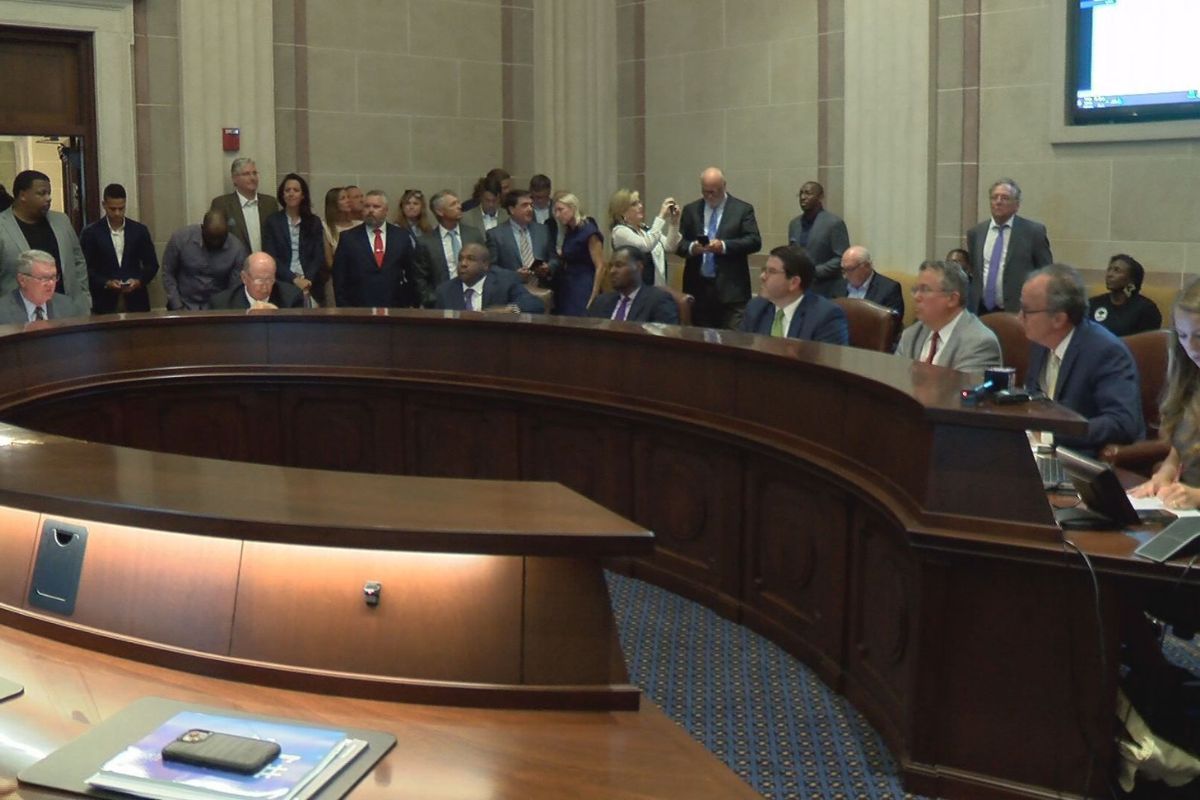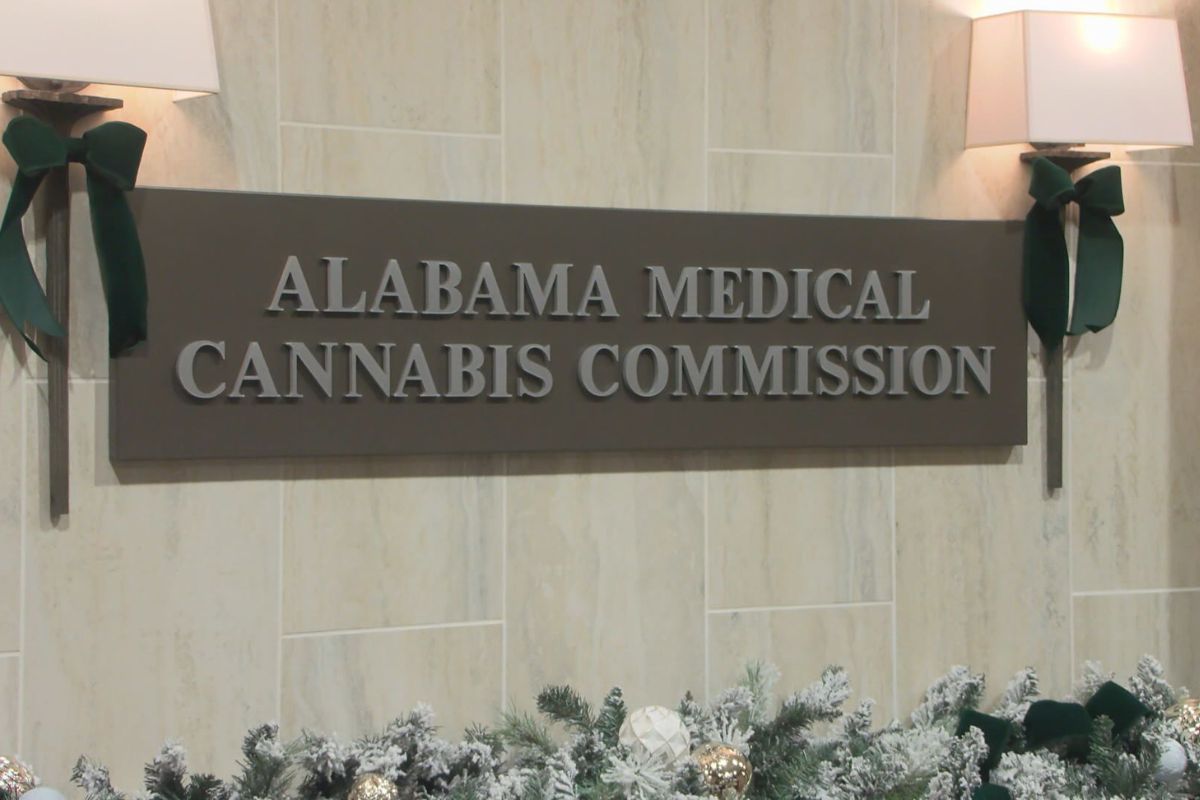Alabama Medical Cannabis Commission Faces: The Alabama Medical Cannabis Commission (AMCC) finds itself at a critical juncture as it faces a looming discovery deadline.
This development comes after a judge granted plaintiff companies the right to conduct discovery, sparking a debate over the reasoning behind the commissioners’ decisions.
With threats of appeal and potential higher court intervention, the AMCC must navigate a complex legal landscape.
In this article, we will explore the implications of the looming discovery deadline and its potential impact on the commission’s future steps.
Key Takeaways
- The Alabama Medical Cannabis Commission (AMCC) is facing a discovery deadline set by Judge James Anderson on January 19, with a hearing scheduled on January 24 in case of non-compliance.
- The discovery phase allows both parties to gather evidence and information to support their arguments, and the plaintiff companies have been granted the right to pursue discovery in their case against the AMCC.
- The plaintiffs seek transparency and accountability in the AMCC’s decision-making process, as the commission is facing allegations of unfair practices and lack of transparency.
- The outcome of the preliminary injunction hearing scheduled for February 28 will have significant implications for the future of medical cannabis in Alabama, and the tension surrounding the situation is palpable as the January 19 deadline approaches.
Alabama Medical Cannabis Commission (AMCC) Faces Discovery Deadline
The Alabama Medical Cannabis Commission (AMCC) is currently grappling with the discovery deadline, a critical phase in the ongoing case, as lawyers representing both the commission and plaintiff companies work towards reaching an agreement.
The discovery deadline, set by Montgomery County Circuit Court Judge James Anderson, is January 19, with a hearing scheduled on January 24 in case of non-compliance. This deadline puts immense pressure on the AMCC and the plaintiff companies to come to a resolution regarding the limitations of discovery.
The discovery phase is essential in any legal case as it allows both parties to gather evidence and information to support their respective arguments. The AMCC and the plaintiff companies must navigate this process carefully to ensure a fair and thorough examination of the case.
Judge Grants Plaintiff Companies Discovery Rights
As the Alabama Medical Cannabis Commission (AMCC) faces the discovery deadline, important progress has been made with Judge Anderson granting plaintiff companies the right to pursue discovery in their case against the AMCC. This decision allows the plaintiffs to obtain depositions and gather evidence to support their claims. It is a significant development in the legal battle between the AMCC and the plaintiff companies, who are seeking transparency and accountability in the commission’s decision-making process.
To better understand the implications of this decision, let’s take a look at the key players involved:
Plaintiff Companies | Alabama Medical Cannabis Commission (AMCC)
- Seeking transparency and accountability in the AMCC’s decision-making process – Facing allegations of unfair practices and lack of transparency
- Granted the right to pursue discovery – Arguing for limitations on the discovery process to protect individual commissioners’ mental processes
With the discovery rights granted, the plaintiff companies now have the opportunity to delve deeper into the AMCC’s operations and gather evidence to support their claims. This could potentially shed light on any unfair practices or biases within the commission’s decision-making process. However, the AMCC’s legal team is pushing for limitations on the discovery process, raising concerns about the privacy and mental processes of individual commissioners. The upcoming discovery phase will be crucial in determining the outcome of this legal battle and whether the AMCC will be held accountable for its actions.

ALSO READ:
Debate Over Reasoning Behind Commissioners’ Decisions
Understanding the reasoning behind commissioners’ decisions is a crucial aspect of the ongoing debate over the transparency and accountability of the Alabama Medical Cannabis Commission (AMCC).
Ben Espy, attorney for Bragg Canna, emphasizes the importance of uncovering the decision-making process. He argues that since the commission falls under the Open Meetings Act, there is no privileged deliberative process. Any attempt to obstruct discovery could be interpreted as an admission of potential illegal activities during private deliberations.
This debate highlights the need for transparency and accountability within the AMCC, as well as the potential consequences of withholding information. The discovery process becomes a critical tool in shedding light on the decision-making of the commissioners and ensuring that their actions align with the best interests of the public.
Threats of Appeal and Higher Court Intervention
AMCC’s lawyers have escalated the situation by threatening to seek intervention from a higher court if they are dissatisfied with Anderson’s discretion in the order of discovery, potentially prolonging the resolution of the issue. This threat of appeal and higher court intervention adds another layer of complexity to the ongoing proceedings.
The AMCC’s legal team’s assertion implies that they believe Anderson’s decisions regarding the order of discovery are flawed or biased. If their dissatisfaction persists, they are prepared to take the matter to a higher court, seeking a different outcome. This threat not only highlights the deep divisions within the AMCC, but also underscores the high stakes involved in the resolution of the issue. It raises questions about the fairness and impartiality of the current proceedings and introduces the possibility of a protracted legal battle that could further delay the establishment of a medical cannabis program in Alabama.
Three possible outcomes of the threatened appeal and higher court intervention are:
- The higher court may agree to hear the case, potentially overturning Anderson’s orders and providing a different framework for the discovery process.
- The higher court may deny the appeal, affirming Anderson’s discretion and allowing the proceedings to continue as planned.
- The threat of an appeal may prompt a reconsideration from Anderson, leading to potential modifications in the order of discovery to address the concerns raised by the AMCC’s legal team.

Preliminary Injunction Hearing and Future Steps
The preliminary injunction hearing for the Alabama Medical Cannabis Commission (AMCC) is approaching, signaling the next steps in the ongoing legal proceedings. Scheduled for February 28, this hearing will determine whether the discovery process will continue or if the AMCC’s legal team will need to file a petition if the issue remains unresolved.
The tension surrounding this situation is palpable as the January 19 deadline looms closer, leaving both parties on edge as they navigate the complexities of this legal dispute. The outcome of the hearing will have significant implications for the future of medical cannabis in Alabama and will shape the direction of the ongoing legal battle.
As the date approaches, all eyes are on the courtroom, awaiting the decision that will set the course for the next steps in this contentious case.
Conclusion Of Alabama Medical Cannabis Commission Faces
The Alabama Medical Cannabis Commission (AMCC) is facing a discovery deadline as plaintiff companies have been granted discovery rights.
There is a debate surrounding the reasoning behind the commissioners’ decisions, and there are threats of appeal and potential higher court intervention.
The next step includes a preliminary injunction hearing.
Our Reader’s Queries
Who regulates cannabis in Alabama?
The Department of Agriculture and Industries will oversee the licensing and regulation of cannabis cultivation.
What is the argument for medical cannabis?
One reason it’s so appealing is that it’s definitely safer than opioids (no risk of overdose and much lower risk of addiction). Plus, it can be used instead of NSAIDs like Advil or Aleve for those who can’t take them due to kidney issues, ulcers, or GERD.
Are edibles legal in Alabama?
The use of dried cannabis flower, vape concentrates, or any type of baked edible will not be allowed. Doctors who are certified to prescribe cannabis can recommend daily doses starting at 50 mg. These recommended products can be wellness items such as tinctures, capsules, and topicals, but they must not contain more than 3% THC.
What is the American medical Association stance on cannabis?
The AMA H-95.924 stance on cannabis legalization for recreational use is clear: (1) considers cannabis a dangerous drug with serious public health implications; (2) opposes the legalization of cannabis for recreational purposes; (3) actively advises against cannabis use, particularly for those who are more susceptible to its effects.

